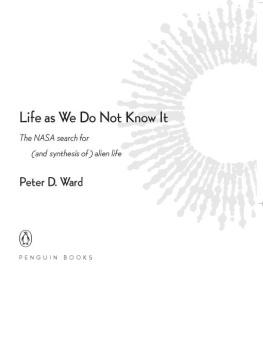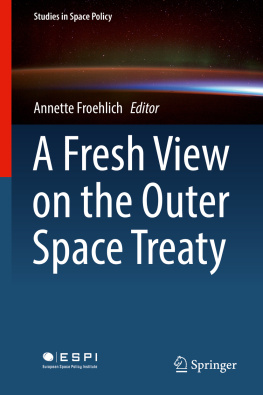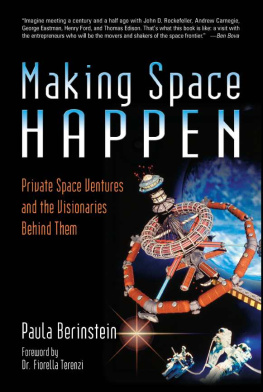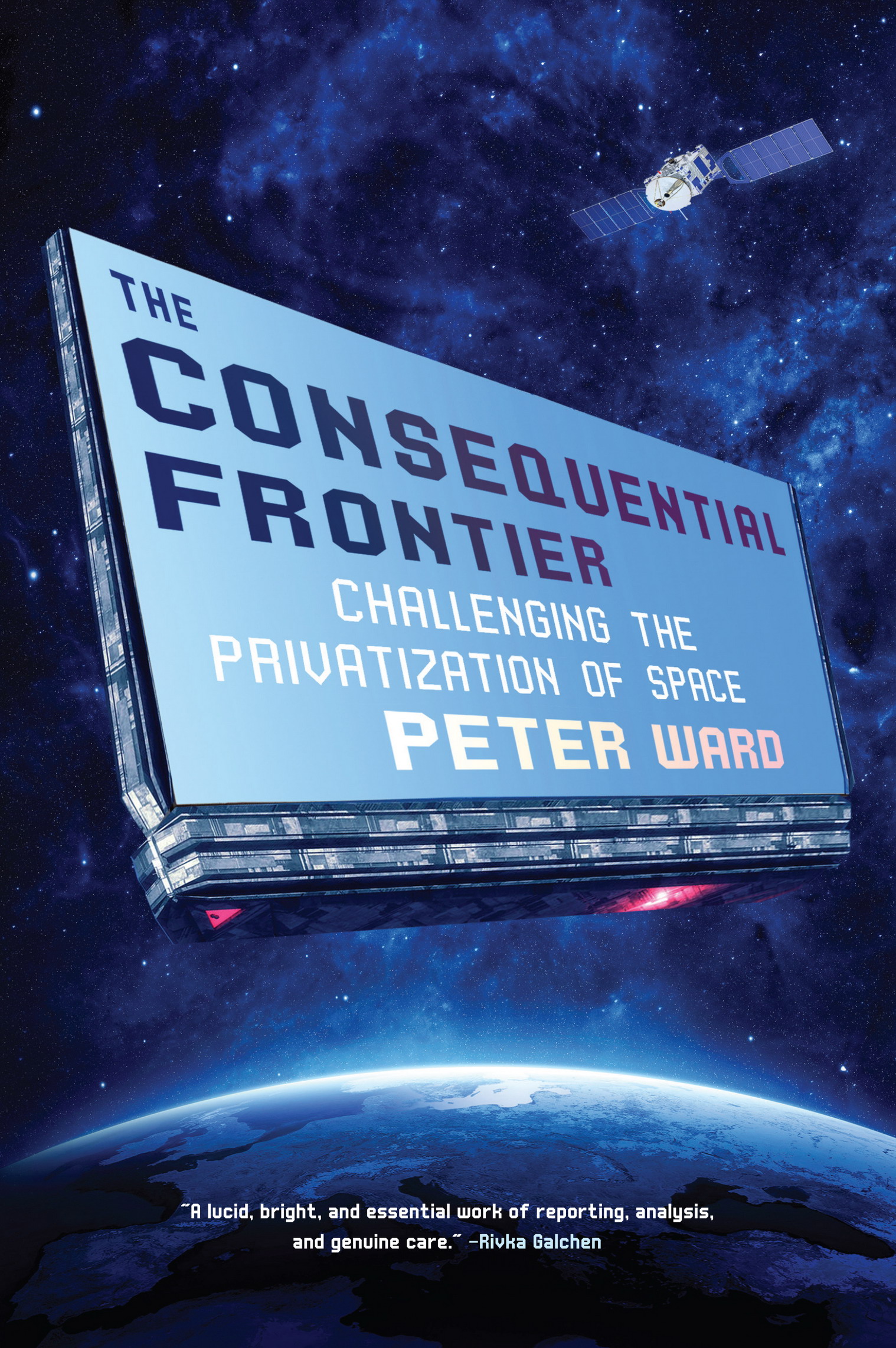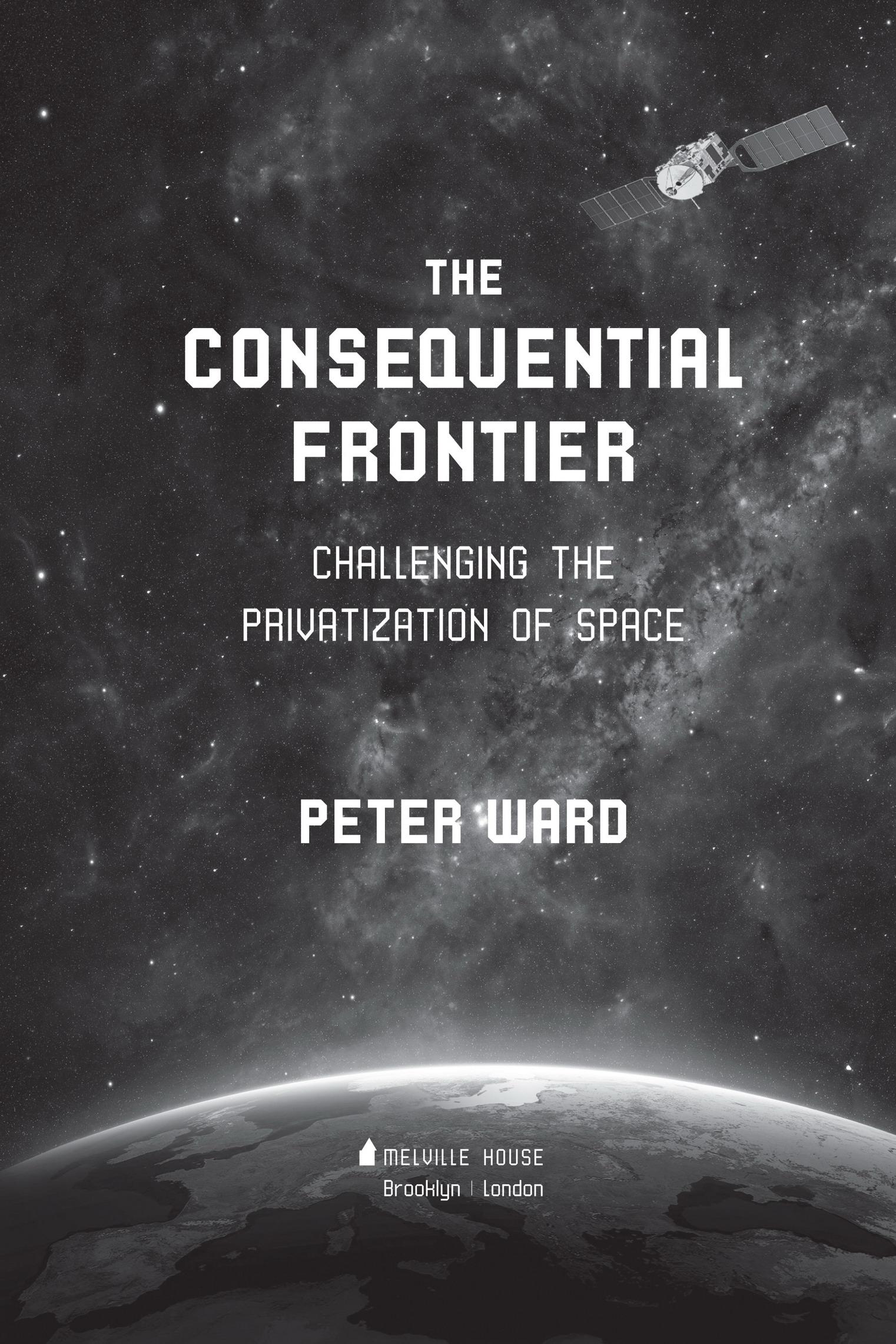Peter Ward - The Consequential Frontier: Challenging the Privatization of Space
Here you can read online Peter Ward - The Consequential Frontier: Challenging the Privatization of Space full text of the book (entire story) in english for free. Download pdf and epub, get meaning, cover and reviews about this ebook. year: 2019, publisher: Melville House, genre: Politics. Description of the work, (preface) as well as reviews are available. Best literature library LitArk.com created for fans of good reading and offers a wide selection of genres:
Romance novel
Science fiction
Adventure
Detective
Science
History
Home and family
Prose
Art
Politics
Computer
Non-fiction
Religion
Business
Children
Humor
Choose a favorite category and find really read worthwhile books. Enjoy immersion in the world of imagination, feel the emotions of the characters or learn something new for yourself, make an fascinating discovery.
- Book:The Consequential Frontier: Challenging the Privatization of Space
- Author:
- Publisher:Melville House
- Genre:
- Year:2019
- Rating:4 / 5
- Favourites:Add to favourites
- Your mark:
The Consequential Frontier: Challenging the Privatization of Space: summary, description and annotation
We offer to read an annotation, description, summary or preface (depends on what the author of the book "The Consequential Frontier: Challenging the Privatization of Space" wrote himself). If you haven't found the necessary information about the book — write in the comments, we will try to find it.
This in-depth work of reportage dares to ask whats at stake in privatizing outer space
Earth is in troubleso dramatically that were now scrambling to explore space for valuable resources and a home for permanent colonization. With the era of NASAs dominance now behind us, the private sector is winning this new space race. But if humans and their private wealth have made such a mess of Earth, who can say we wont do the same in space?
In The Consequential Frontier, business and technology journalist Peter Ward is raising this vital question before its too late. Interviewing tech CEOs, inventors, scientists, lobbyists, politicians, and future civilian astronauts, Ward sheds light on a whole industry beyond headline-grabbing rocket billionaires like Bezos and Musk, and introduces the new generation of activists trying to keep it from rushing recklessly into the cosmos.
With optimism for what humans might accomplish in space if we could leave our tendency toward deregulation, inequality, and environmental destruction behind, Ward shows just how much cooperation it will take to protect our universal resource and how beneficial it could be for all of us.
Review
Carefully researched. . . . Wards book provides a detailed history of how control of space changed from a taxpayer-funded contest of national pride between Cold War superpowers to an emerging market fought over by CEOs, corporations and lobbyists.Lincoln Michel, InsideHook
A lucid, bright and essential work of reporting, analysis and genuine care. Peter Ward has given us a new way to think about private endeavors in space. Superb.Rivka Galchen, author of Little Labors
A very useful primer for understanding the current state of space policy and the predicaments of its neoliberal turn. Fraser MacDonald, author of Escape From Earth
A deeply-reported and endlessly entertaining journey through the cosmic gold rush that will, one way or another, define commerceand lifeon Earth for generations to come.Atossa Araxia Abrahamian, author of The Cosmopolites: The Coming of the Global Citizen
Wards fascinating exploration of the possibilities of privatizing interplanetary activities comes at the perfect moment. . . . This savvy work gives readers valuable insight into the ramifications, good and bad, of allowing business into space.Publishers Weekly
Wards research is impressive, as in the breadth of his detailed resources, and readers fascinated by the exploits of Elon Musk and Jeff Bezos will be particularly intrigued by his findings.Booklist
Peter Ward: author's other books
Who wrote The Consequential Frontier: Challenging the Privatization of Space? Find out the surname, the name of the author of the book and a list of all author's works by series.







